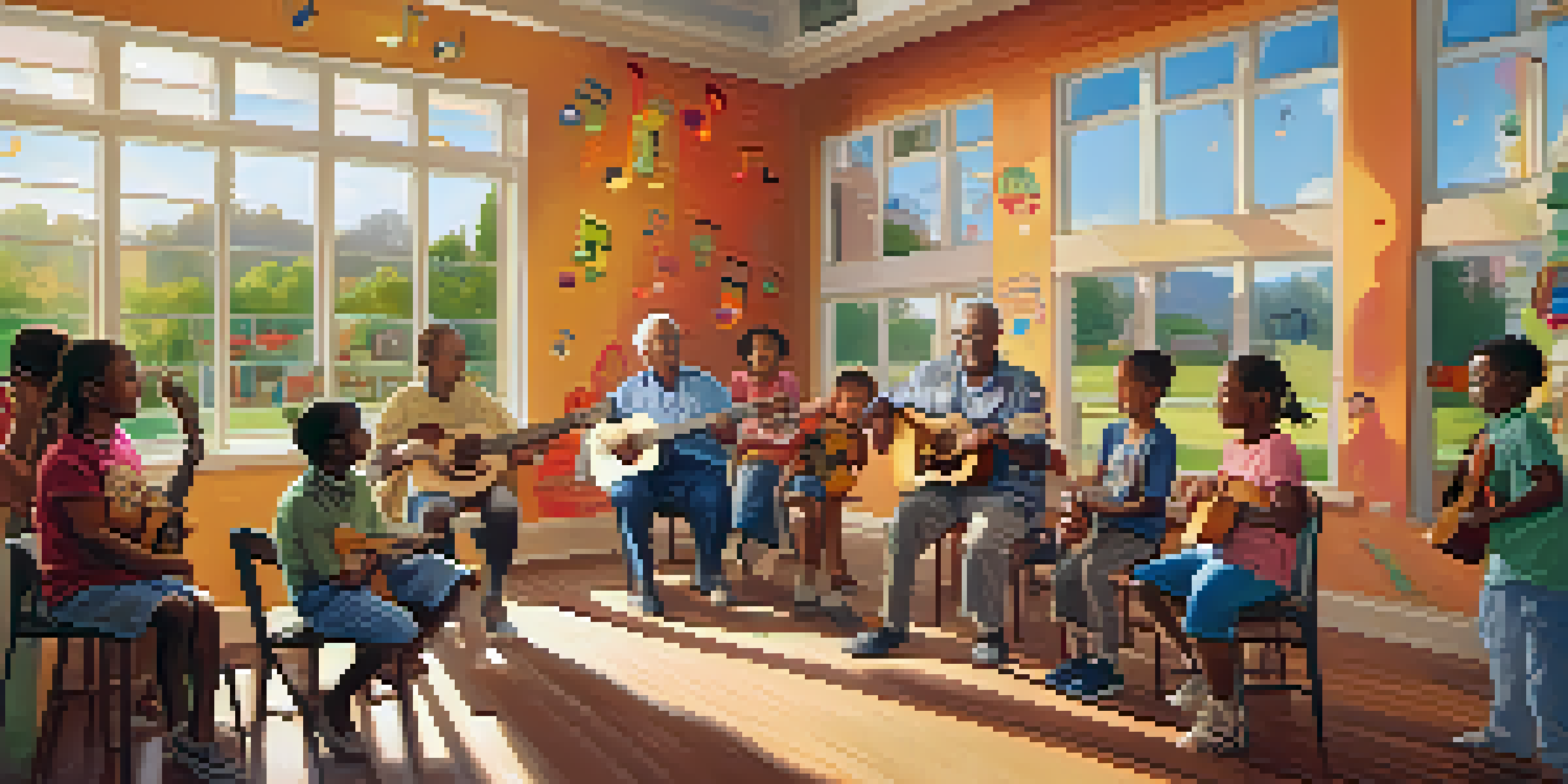Intergenerational Music Programs: Bridging Age Gaps

Understanding Intergenerational Music Programs
Intergenerational music programs are initiatives that bring together individuals from different age groups to create and share music. These programs often involve seniors and younger participants, encouraging collaboration and mutual learning. By merging diverse musical experiences, they foster a unique environment where stories, traditions, and creativity can flourish.
Benefits for Younger Participants
For younger participants, engaging in intergenerational music programs provides a wealth of benefits. They gain insights from the life experiences of older generations, which can be invaluable in shaping their perspectives. Additionally, they often develop empathy and social skills, learning to communicate and collaborate with people from vastly different backgrounds.
Benefits for All Generations
Intergenerational music programs provide valuable insights and enhance social skills for youth while boosting cognitive function and combating loneliness for older adults.
Benefits for Older Adults
Older adults also reap numerous rewards from participating in these programs. Music has been shown to enhance cognitive function, and engaging with younger generations can boost feelings of purpose and belonging. These interactions can help combat loneliness and isolation, which are common issues faced by seniors.
Fostering Creativity and Innovation
One of the most exciting aspects of intergenerational music programs is the breeding ground for creativity and innovation. When young and old minds come together, they blend their unique styles and ideas, leading to fresh musical expressions. This collaboration often results in original songs or performances that reflect a beautiful tapestry of experiences and viewpoints.
Creativity Through Collaboration
These programs foster creativity by blending diverse musical styles and experiences, resulting in unique expressions that reflect both young and old perspectives.
Building Community Connections
Music has a unique ability to connect people, and intergenerational programs can strengthen community bonds. By bringing together different age groups, these initiatives encourage dialogue and understanding, leading to a more cohesive community. Participants often find common ground in their shared love for music, promoting a sense of unity and belonging.
Real-Life Examples of Successful Programs
Programs like 'Music & Memory' and 'Generations United' have successfully linked younger and older individuals through music. These initiatives have shown remarkable outcomes, such as improved mental health for seniors and enhanced emotional intelligence for youth. By sharing their stories, these programs highlight the transformative power of music across generations.
Strengthening Community Bonds
By connecting different age groups through music, intergenerational initiatives promote understanding and unity, creating a more cohesive community.
Challenges and Solutions in Implementation
While the benefits of intergenerational music programs are clear, there are challenges to consider. Differences in musical preferences and communication styles can create barriers. However, facilitators can address these issues by focusing on common interests and using a variety of musical genres to engage everyone involved.
The Future of Intergenerational Music Initiatives
As society continues to evolve, the potential for intergenerational music programs remains bright. With advancements in technology and a growing recognition of the importance of social connections, these initiatives can thrive. The future will likely see even more innovative approaches to bridging age gaps through the universal language of music.